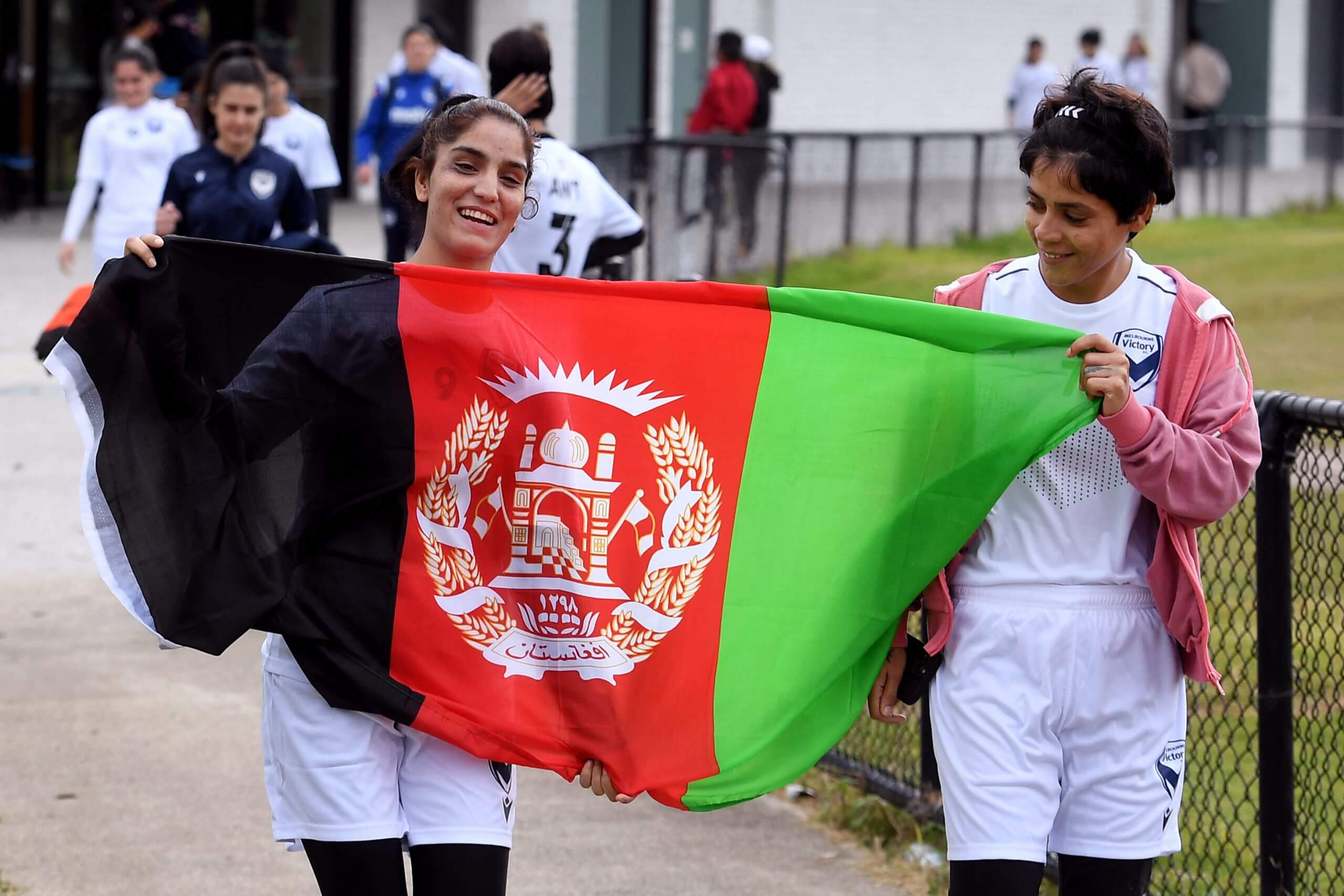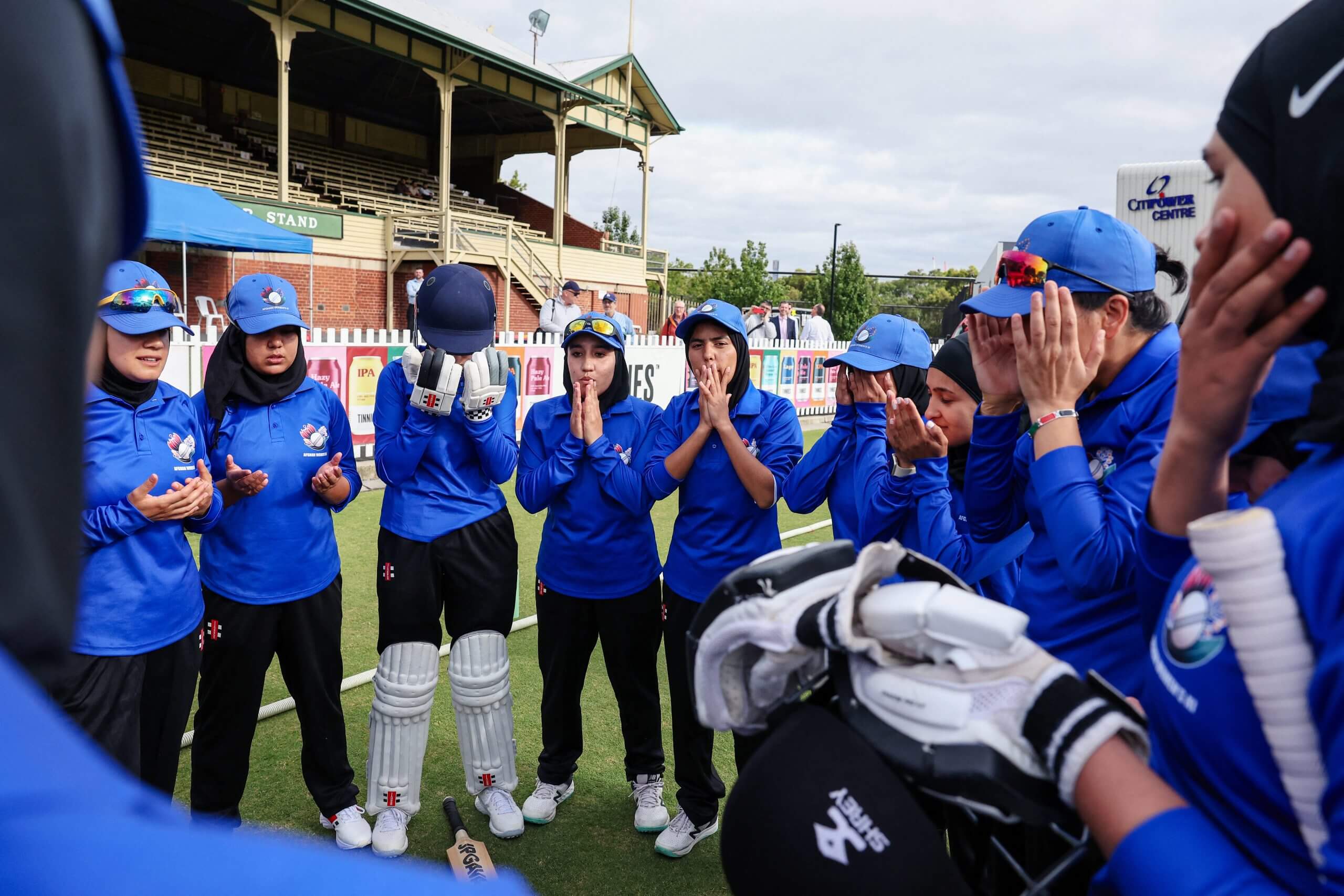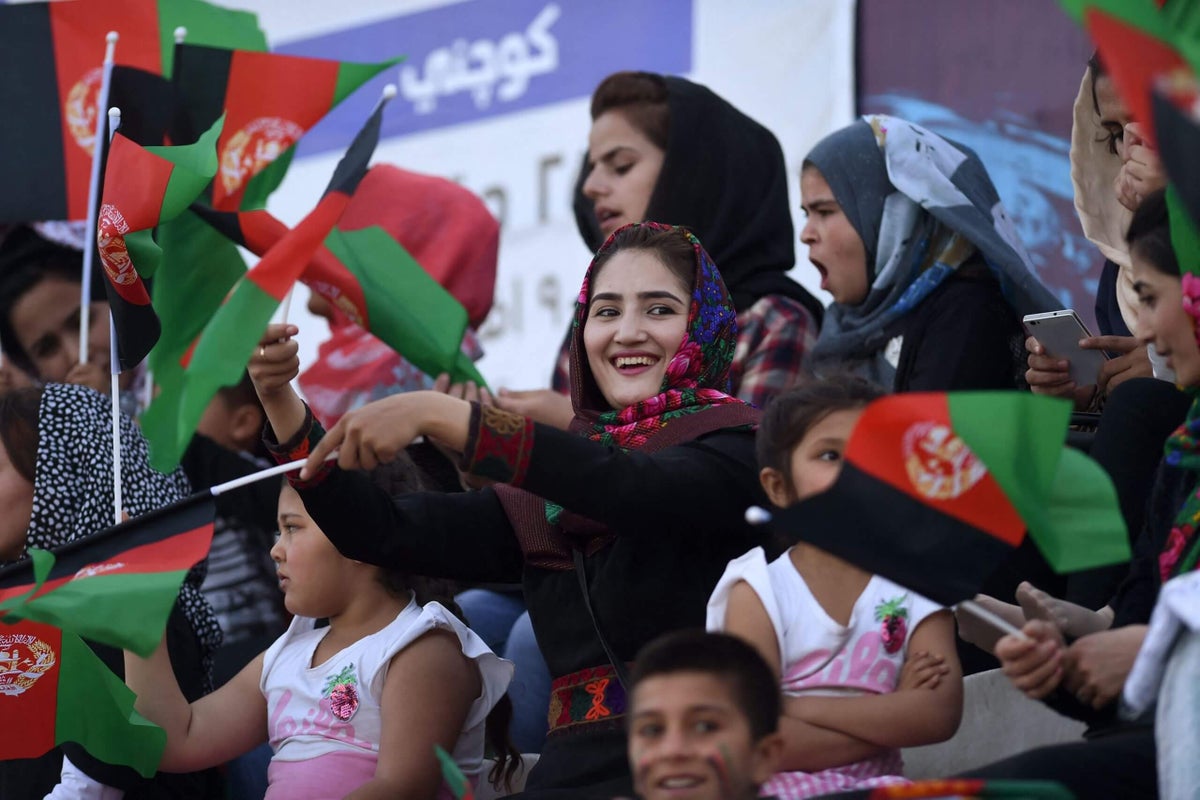United States-based female refugee soccer players from Afghanistan will not have access to FIFA-organised training camps that determine the selection process for the newly-created Afghanistan women’s refugee team.
In May, FIFA sanctioned an officially-recognised team of evacuated female players of Afghan nationality who obtained refugee status abroad to participate in matches overseen by world football’s governing body.
Subject to approval from the FIFA Council, the team would be able to compete in tournaments overseen by FIFA, which says the environment “would prioritise player safety and well-being”. Seventeen coaches were hired to oversee the training camps.
Camps have already been held by FIFA in Australia and in Europe but in a call earlier this month, the governing body informed U.S.-based players that a similar camp could not be staged for them inside or outside the nation, citing safety concerns.
This means that Afghan refugees in the U.S. will not be available to play for the Afghan refugee side. All players in the U.S. are legally eligible to live, work, and travel in the country.
The Taliban-controlled Afghan Football Federation (AFF) does not acknowledge its women’s teams, with all women’s sports banned across the nation since 2021, when the Islamic fundamentalist group returned to power.
Afghanistan’s women’s side have not played an official match since 2018 and no longer features in FIFA’s 196-team world rankings.

Members of the Melbourne Victory Afghan women’s team carry the Afghanistan flag before their first match in a local league in April 2022 (William West/AFP via Getty Images)
Several of the U.S.-based players have spoken to The Athletic to express their disappointment at the decision, and have called on FIFA to allow the same access shared by their fellow Afghanis residing elsewhere.
“Football has always been my identity, my freedom and my way to represent Afghan women on the world stage,” said 20-year-old Zahra (Zed) Sultani, a former under-17 international player and top scorer for Houston Shine FC — a women’s team set up earlier this year to represent the Texas city’s Afghan population. Of the 22 footballers who FIFA helped to resettle in the U.S., 10 are based in Houston.
“Football has always been my identity, my freedom and my way to represent Afghan women on the world stage,” Sultani added. “The FIFA announcement of refugee training camps gave me a little bit of hope after the Taliban’s takeover made me fearful I’d lost my dream, my country, my team-mates.
“But the cancellation of the U.S. camp has broken my heart. So many of us have already gone through such pain and sacrifice. Football was the one thing that kept us connected to our past and our future. We just want the chance to play, to heal, and to show the world that Afghan women still belong in football.”
Sodaba Khinjani, who played for the Afghanistan women’s side in their first officially recognised games in 2010, said that it was “deeply painful” to hear that U.S.-based players could not access the camps.
“It is unacceptable and makes no sense,” Khinjani, 28, said. “There is no difference between female players from the U.S., Australia or Europe. We have worked tirelessly but there has been no positive result. We feel abandoned and disrespected.”

Afghanistan women’s cricket team played a match against Cricket Without Borders XI in Melbourne in January, their first match since fleeing the Taliban three years earlier (Martin Keep/AFP via Getty Images)
Nilofar Mumtaz, 24, said: “We have been in the U.S. for four years without our families, despite promises from authorities that they could come. We see training camps in Australia and England but not for the U.S., and this makes us sad and we have cried about this. We will not give up.”
When asked for comment by The Athletic, FIFA said: “Player safety and well-being are FIFA’s top priority. At every stage of this project, which FIFA has pioneered and has been a leader in the sports world, we take into account the necessary legal and logistical measures to ensure players can participate safely and return to their places of residence in line with local regulations.
“As with any project of meaning, this is a process that takes time to work through. However, we did not wait for everything to be perfect or circumstances to be ideal before taking action. With this same spirit, step by step, we are working to involve more players as diverse logistical challenges are addressed.
“FIFA remains committed to providing opportunities to all players eligible for the Afghan Women’s Refugee Team and maintains contact with the players based in the United States who were unable to join the current camps. We will continue reviewing and working with key stakeholders to facilitate their involvement in future participation opportunities — always upholding the highest safeguarding standards.”
Following the Taliban’s return to power, more than 75 people associated with the nation’s women’s senior football team — including players, officials and their families — escaped to Australia, assisted by FIFPro, football’s global players’ union. Others fled to countries in Europe, including the United Kingdom.
FIFA says it supported the evacuation of around 160 people in total from Afghanistan in October 2021, around 70 per cent of whom were women and children, including female players.
The United Nations has said Afghanistan’s repressive measures against women’s rights, including a ban on education, could amount to “gender apartheid”.
The U.S. has admitted more than 190,000 Afghans since August 2021.
(Top photo: Wakil Kohsar/AFP via Getty Images)
